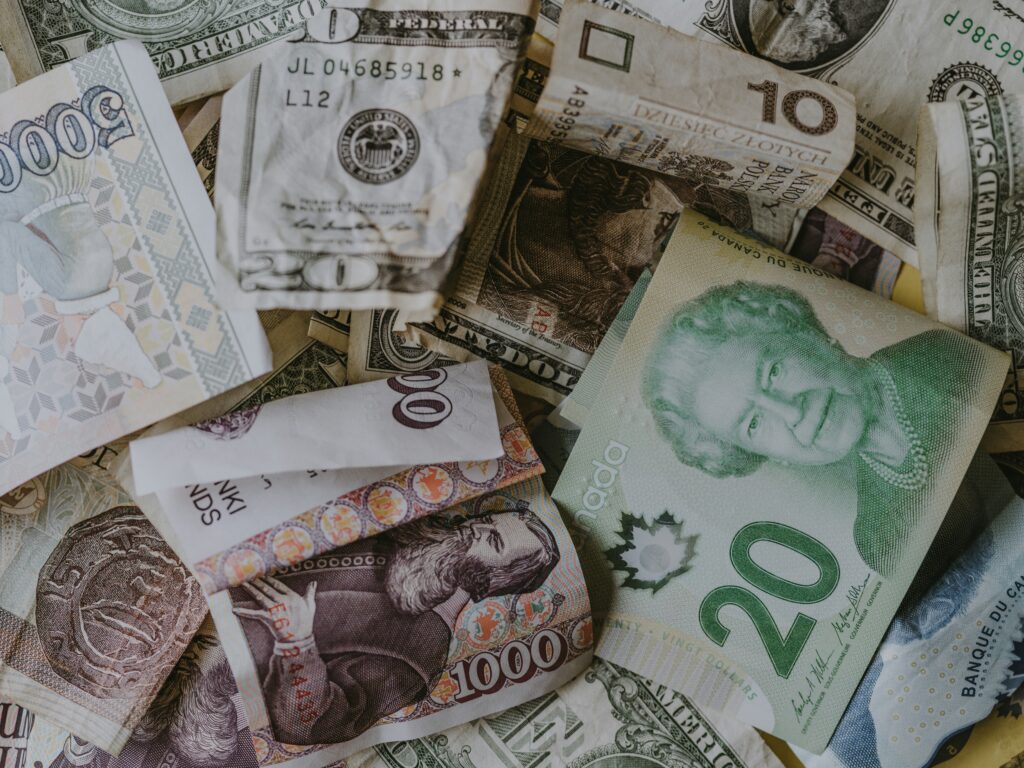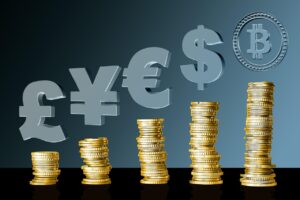What affects exchange rates?
Just like in any other field, knowledge is usually rewarded in the currency market. An important skill is knowing what makes exchange rates move up or down. Apart from factors such as interest rates and inflation, the exchange rate is one of the most important measures of a country’s relative economic health.
Exchange rates play an important role in a country’s level of trade, which is crucial for most free market economies in the world. For this reason, exchange rates are among the most watched, analyzed and state-manipulated economic measures. Exchange rates also play a role on a smaller scale. Exchange rates affect the real return of an investor’s portfolio. In this article, we look at some of the major forces behind exchange rate changes.
Many factors determine exchange rates. Many of these factors are related to the trade relationship between the two countries. Remember that exchange rates are relative and are expressed as a comparison of the currencies of two countries. Below we have listed some of the main determinants of the exchange rate between two countries. Note that these factors are not in any particular order. like many aspects of the economy, the relative importance of these factors is the subject of much debate.
Before looking at these forces, we should consider how exchange rate movements affect a nation’s trade relations with other nations. A higher valued currency makes a country’s imports cheaper and exports more expensive in foreign markets. A lower valued currency makes a country’s imports more expensive and exports cheaper in foreign markets. Thus, a higher exchange rate can be expected to worsen a country’s trade balance, while a lower exchange rate can improve it. Thus, determining the best value for a currency is not easy, but something that central bankers and economists around the world consider on a daily basis.
A measure of economic health
The exchange rate is one of the main means by which a country’s relative level of economic health is determined. A country’s exchange rate provides a snapshot of its economic stability. The exchange rate is defined as “the rate at which one country’s currency can be converted into another.” It can vary daily with the changing market forces of supply and demand for currencies from one country to another. For these reasons, when trading currency internationally, it is important to understand what determines exchange rates.
This article examines some of the leading factors that influence variations and fluctuations in exchange rates, explaining the reasons behind their volatility and helping you learn how to trade forex.
Inflations
Changes in inflation directly cause changes in exchange rates. A country with lower inflation than another will see the value of its currency rise. Prices of goods and services increase at a slower pace where inflation is low. A country with a consistently lower rate of inflation shows a rising currency value while a country with higher inflation usually sees depreciation in its currency, which is usually accompanied by higher interest rates.
Typically, a country with a consistently lower inflation rate shows a rising currency value, as its purchasing power increases relative to other currencies. In the last half of the 20th century, low inflation countries included Japan, Germany and Switzerland, while the United States and Canada achieved low inflation only later. Countries with higher inflation usually see depreciation in their currency relative to the currencies of their trading partners. This is usually also accompanied by higher interest rates.
Interest rate
Changes in interest rates affect the value of the currency and its relationship with the dollar, euro and other currencies.
Interest rates, inflation and exchange rates are all highly correlated. By intervening and manipulating interest rates, central banks influence both inflation and exchange rates. Changes in interest rates affect inflation and currency values. Higher interest rates give lenders in one economy higher returns relative to other countries. Therefore, higher interest rates attract foreign capital and cause the exchange rate to rise.
However, the effect of higher interest rates is mitigated if inflation in the country is much higher than in others, or if additional factors serve to depreciate the currency. The opposite relationship exists for lowering interest rates – that is, lower interest rates tend to lower exchange rates.
Balance of payments
A country’s balance of payments reflects the trade balance and the result of foreign investment. It consists of the total number of transactions including its exports, imports, liabilities, etc. A current account deficit due to more of a country’s currency being spent on importing products than it earns from selling exports causes the value of the currency to fall. The balance of payments affects a country’s exchange rate. It also means that the country is in effect borrowing capital from foreign sources to make up the deficit. In other words, the country requires more foreign currency than it receives from the sale of exports, and it supplies more of its own currency than foreigners demand its products.
The excess demand for foreign currency lowers the country’s exchange rate until domestic goods and services are cheap enough for foreigners, and foreign assets are too expensive to generate sales for domestic interests.
Public debt
Sovereign debt is the public or government debt owned by the government. A country with public debt is less likely to acquire foreign capital, leading to inflation. Foreign investors will sell their bonds on the open market if the market predicts an increase in government debt in a particular country. As a result, the country will see a decrease in the value of its currency.
All countries need to finance large-scale deficits from time to time to pay for public projects and government funding. While such activity stimulates the domestic economy, countries with large public deficits and debts are less attractive to foreign investors.
The reason? A large debt encourages inflation, and if inflation is high, the debt will decrease in value through this inflation and eventually be paid with cheaper real currency in the future.
At worst, a government can print money to pay off part of a large debt, but increasing the money supply inevitably causes inflation. Moreover, if a government cannot service its deficit through domestic means (selling domestic bonds, increasing the money supply), it must increase the supply of securities sold to foreigners and thus lower their prices.
Finally, a large debt can be a source of concern for foreigners if they believe the country is at risk of default. Foreigners are less willing to own securities in that currency if the risk of default is high. For this reason, the country’s credit rating as determined by, for example, Moody’s or Standard & Poor’s, is the determining factor for its exchange rate.
Balance of trade
For the current account and balance of payments, the terms of trade are the ratio of exports to imports. A country’s trade balance improves if exports increase at a higher rate than imports. This results in higher revenues, causing a higher demand for the country’s currency and an increase in the value of the currency. This results in an appreciation of the exchange rate, which in turn can make it more difficult for the country’s companies to export as their goods, all else being equal, are now more expensive than before.
Strong economic development
Foreign investors inevitably seek stable countries with strong economic performance to invest their capital in. A country with such positive attributes will attract capital from other countries perceived to have higher political and economic risk. For example, political turmoil can cause loss of confidence in a currency and capital movement to the currencies of more stable countries.
Political stability and performance
A country’s political stability and economic performance can affect the strength of its currency. A country with less risk of political unrest is more attractive to foreign investors. The increase in foreign capital in turn leads to an appreciation of its domestic currency. A country with sound fiscal and trade policies leaves no room for uncertainty in the value of its currency. A country facing political confusion may see a depreciation in its exchange rate.
Recession
When a country experiences a recession, its interest rates are likely to fall, reducing that currency’s chances of attracting foreign capital. As a result, its currency weakens in comparison with other countries, and therefore the exchange rate falls. What happens when the whole world’s economies are hit by a recession, for example due to the coronavirus, is never mentioned in economics textbooks.
Speculation
If a country’s currency value is expected to increase, investors will demand more of that currency to make a profit in the near future. As a result, the value of the currency will rise due to increased demand. With this increase in currency value comes an increase in the exchange rate.
Summary
The exchange rate of the currency in which a portfolio holds most of its investments determines the portfolio’s real return. A falling exchange rate obviously reduces the purchasing power of income and capital gains derived from any returns. In addition, the exchange rate affects other income factors such as interest, inflation and even capital gains from domestic securities. Although exchange rates are determined by many complex factors that often leave even the most experienced economists divided, investors should still have some understanding of how currency values and exchange rates play an important role in the return on their investments.
About the Viking
With Viking’s signals, you have a good chance of finding the winners and selling in time. There are many securities. With Viking’s autopilots or tables, you can sort out the most interesting ETFs, stocks, options, warrants, funds, and so on.
Click here to see what Vikingen offers: Detailed comparison – Stock market program for those who want to become even richer (vikingen.se)













